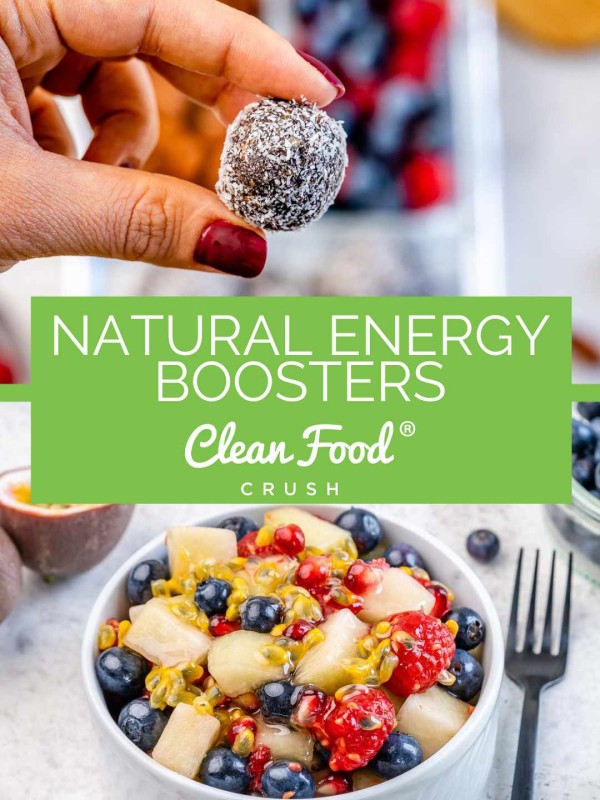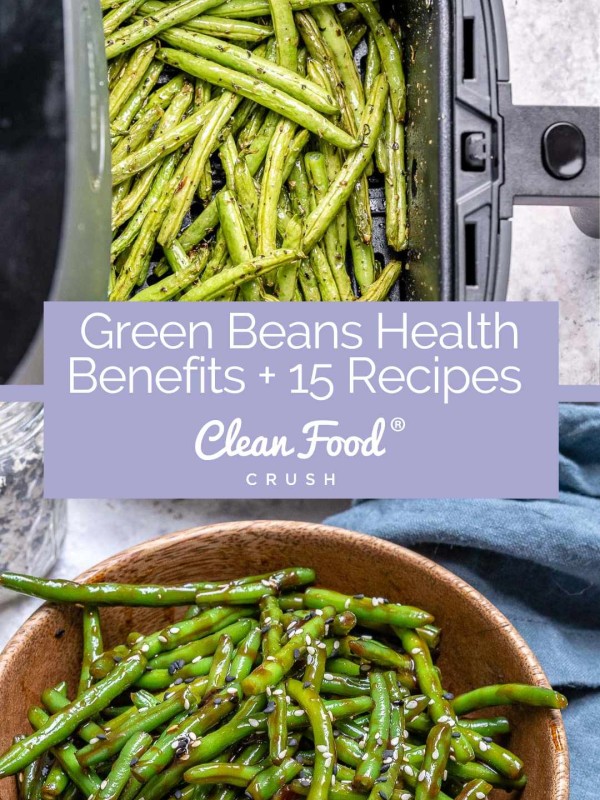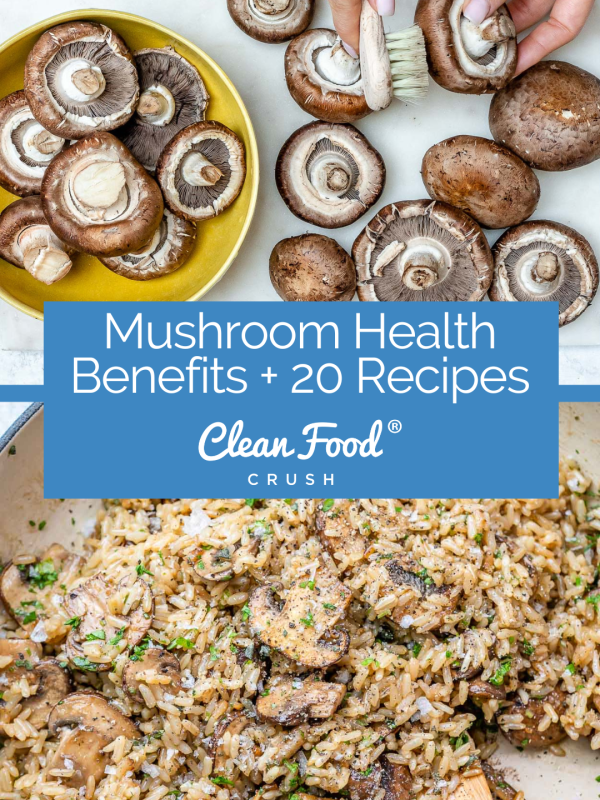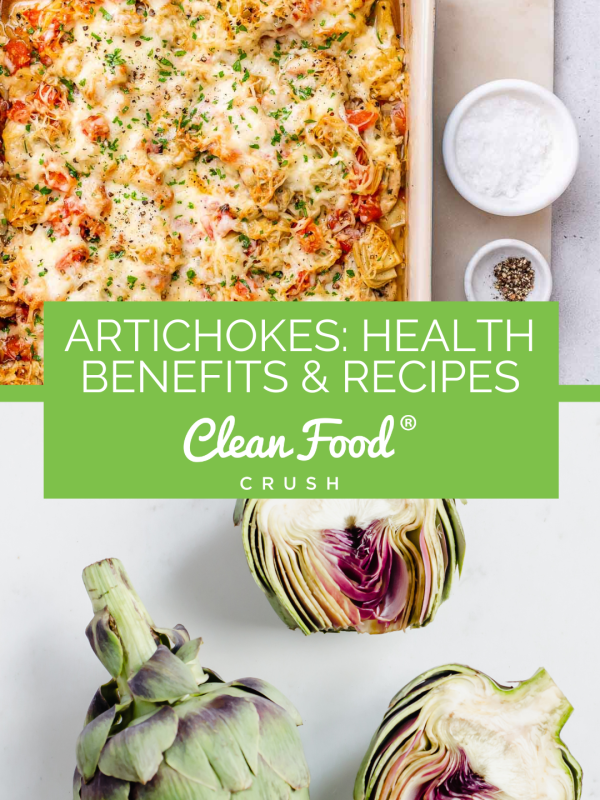This post contains affiliate links. Please see our disclosure policy.
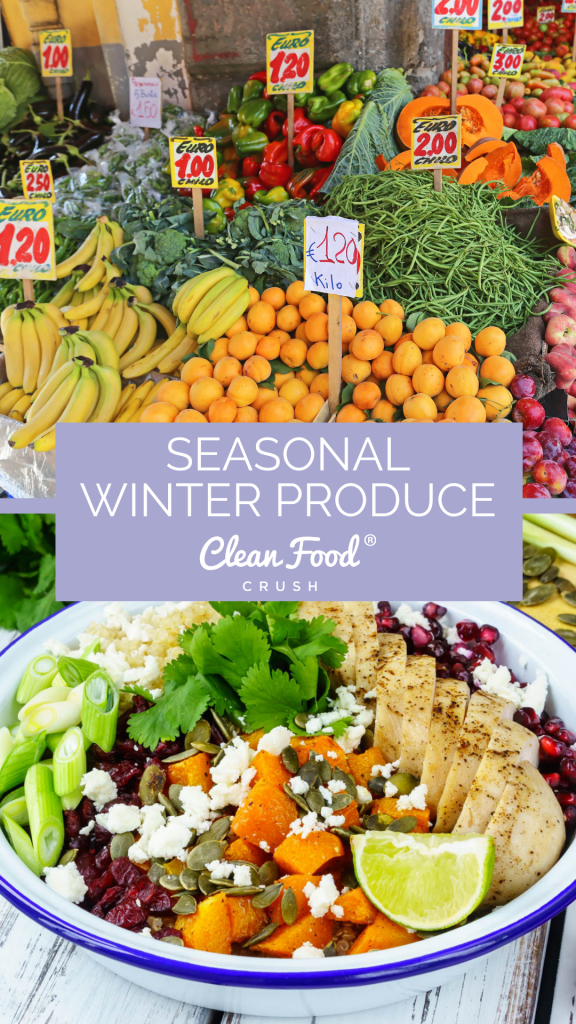
Seasonal Winter Produce
Wintertime is full of delicious food. With so many holidays happening this time of year, there’s no doubt that you’re likely making many trips to the grocery store to stock up on all the essentials. This makes winter a perfect time to focus on enjoying in-season fruits and vegetables. Keep reading to learn about why eating seasonally is best, which produce is in season in winter, and recipe ideas for incorporating winter produce into your diet today.
Reasons to Eat Seasonally
Produce that is in season is grown in its natural climate (versus something like a greenhouse), and is ideally purchased and eaten close to the time of harvest.
Here are the top 3 reasons to focus on eating seasonal produce:
Reason One: Best flavor.
Seasonal fruits and veggies taste the best when allowed to naturally ripen at the appropriate time of year. If you’ve ever eaten a tasteless strawberry in wintertime and compared it to the red and juicy strawberries in summer, for example, you’ve experienced this for yourself.
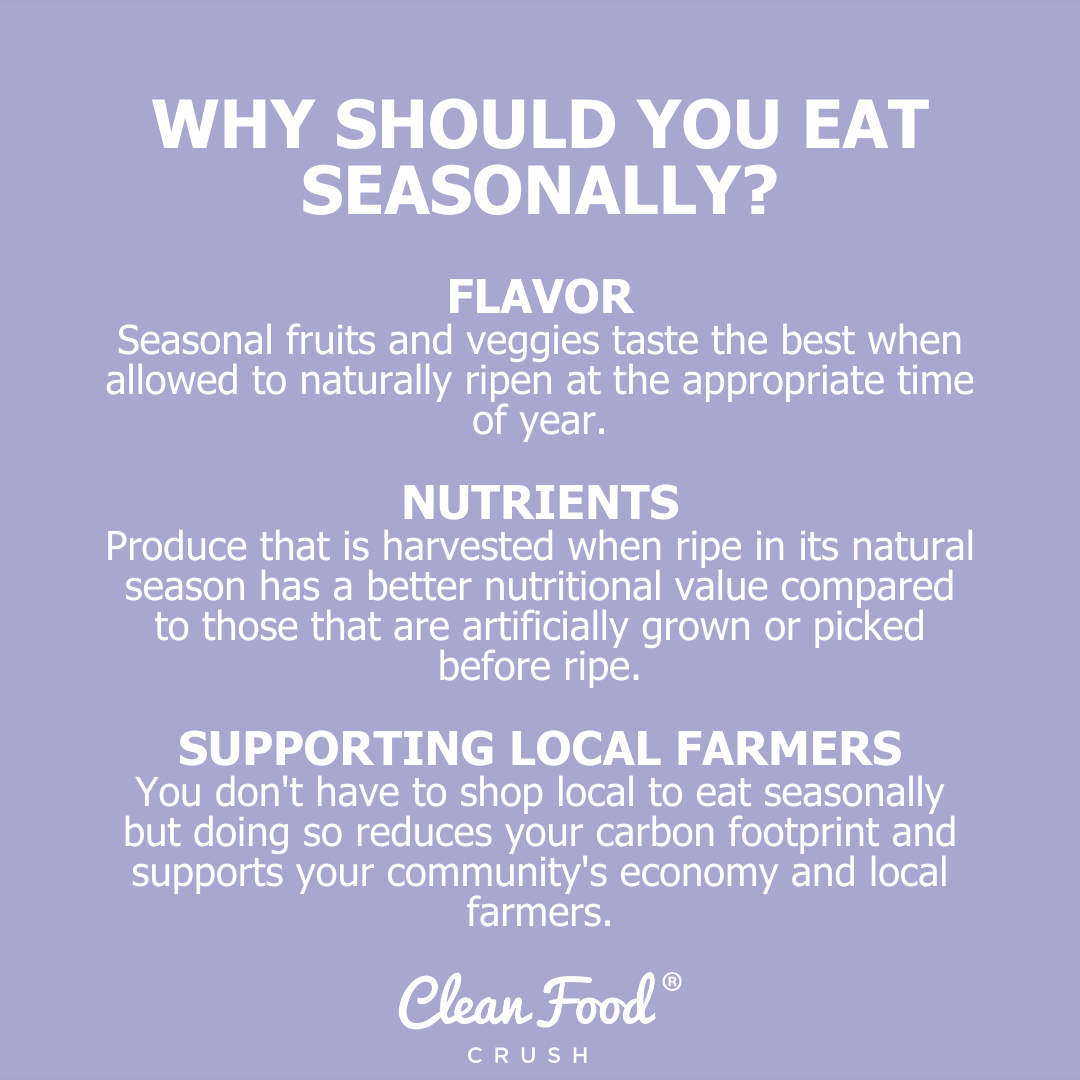
Reason Two: Better nutrient density.
Produce that is harvested when ripe in its natural season has a better nutritional value compared to those that are artificially grown or picked before it has had a proper chance to ripen. Eating seasonally will provide your body with higher levels of many nutrients including vitamins and antioxidants.
Reason Three: Provides support to your local farmers.
While it is possible to eat seasonally but not locally, doing both has the benefit of reducing your carbon footprint and supporting your communities’ economy and local farmers. You can eat locally by shopping at farmers markets, participating in community-supported agriculture, and keeping an eye out for “locally grown” signs at the grocery store.
Local produce doesn’t have to travel as far before arriving in your kitchen. While choosing organic produce is not required, doing so will help reduce your exposure to chemicals like pesticides and provide even more health benefits. You can refer to the Environmental Working Group’s dirty dozen list to find out which produce items are most important to purchase organic when possible.
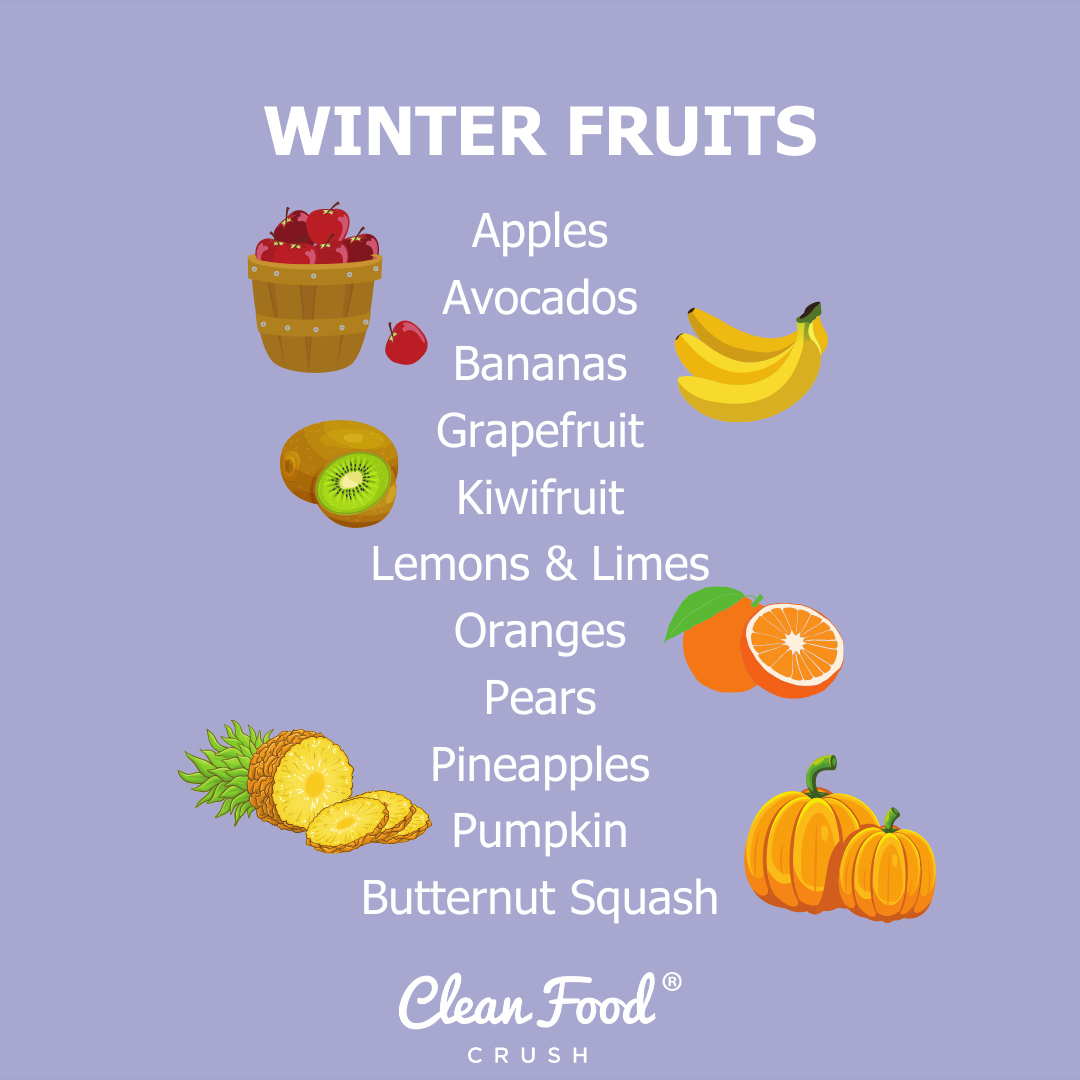
What’s in season in winter?
When making your grocery list this time of year, try to focus on the following fruits and veggies that are in season during winter*:
- Apples
- Avocados
- Bananas
- Beets
- Brussels Sprouts
- Cabbage
- Carrots
- Celery
- Collard Greens
- Grapefruit
- Kale
- Kiwifruit
- Leeks
- Lemons & limes
- Onions
- Oranges
- Parsnips
- Pears
- Pineapples
- Potatoes
- Pumpkin
- Rutabagas
- Swiss Chard
- Turnips
- Winter Squash like acorn & butternut
- Yams
*Keep in mind that what is in season will vary slightly from state to state based on climate. In addition, some of these produce items are also in season during other times of the year.
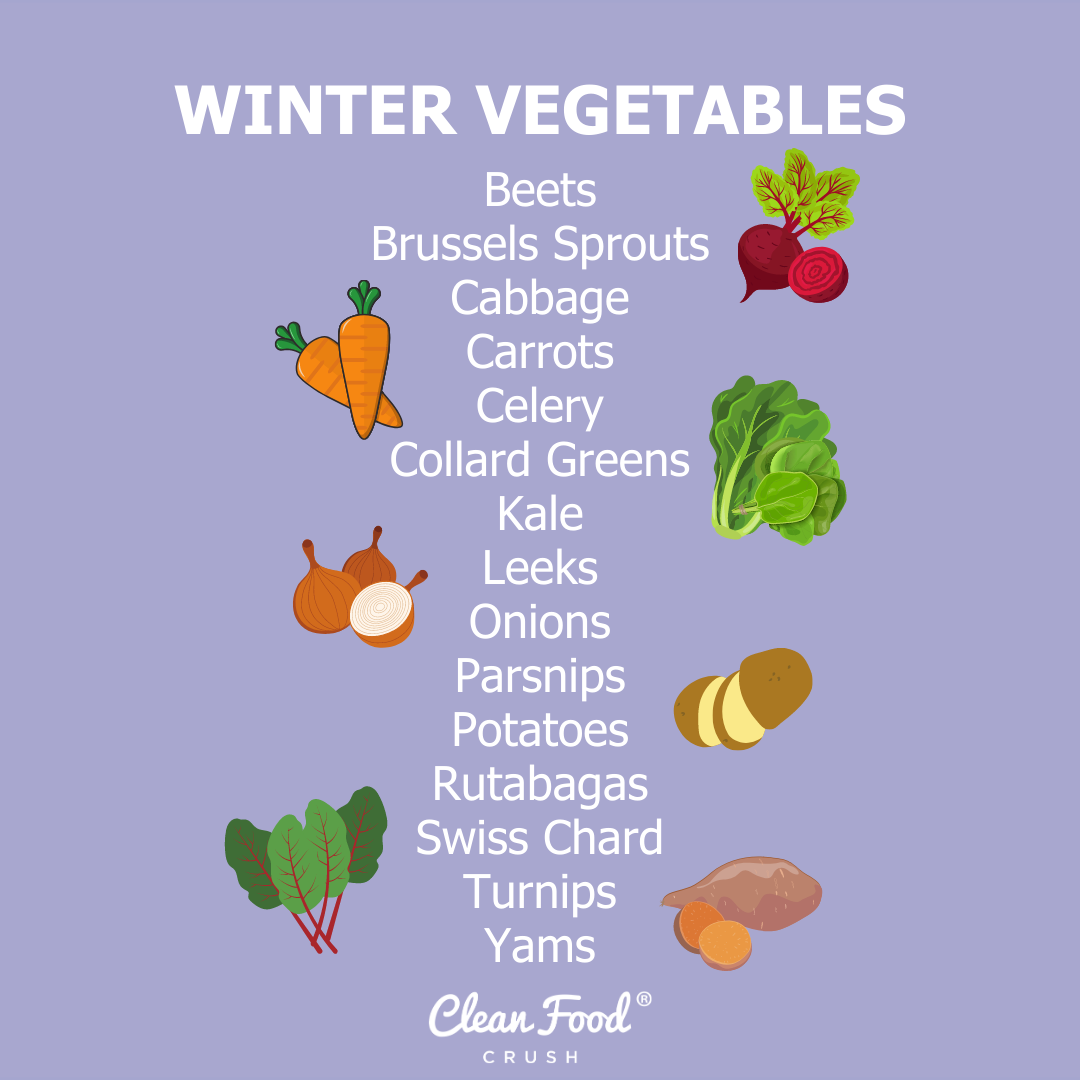
Ideas for using seasonal winter produce
Check out these warming and nourishing recipes to help you take advantage of these delicious winter fruits and vegetables:
Warm Quinoa and Brussels Sprouts Salad
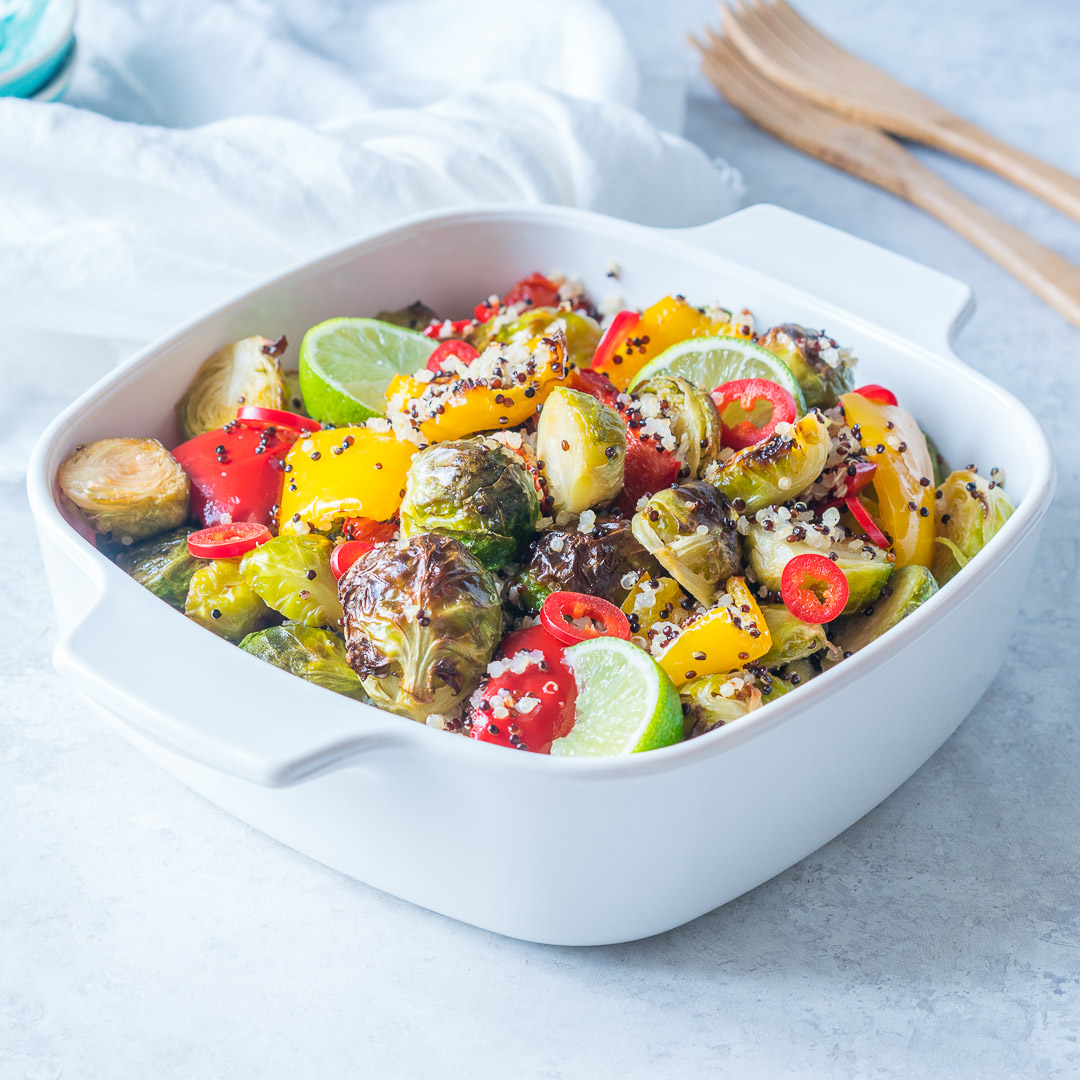
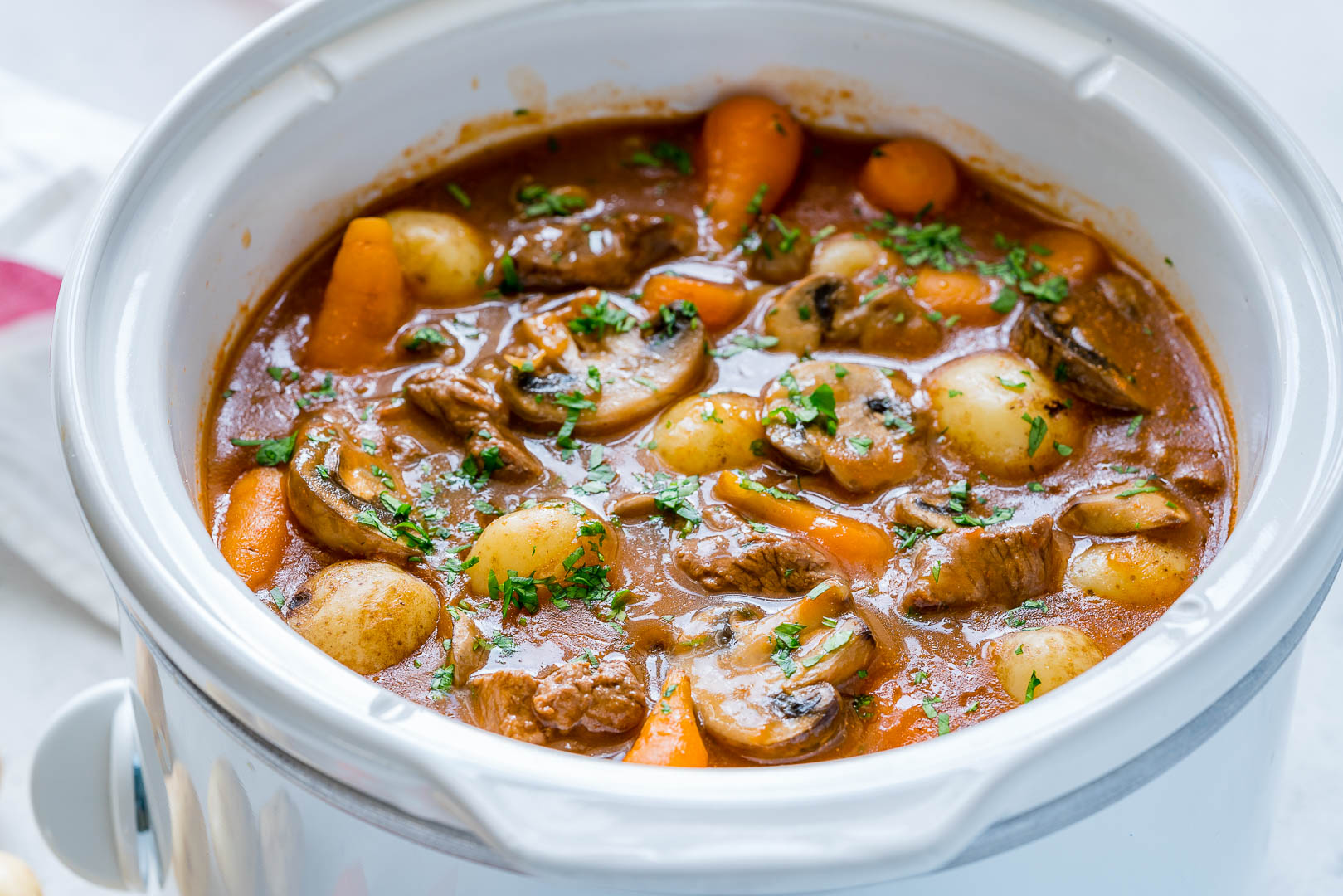
Chicken, Butternut Squash and Quinoa Bowls
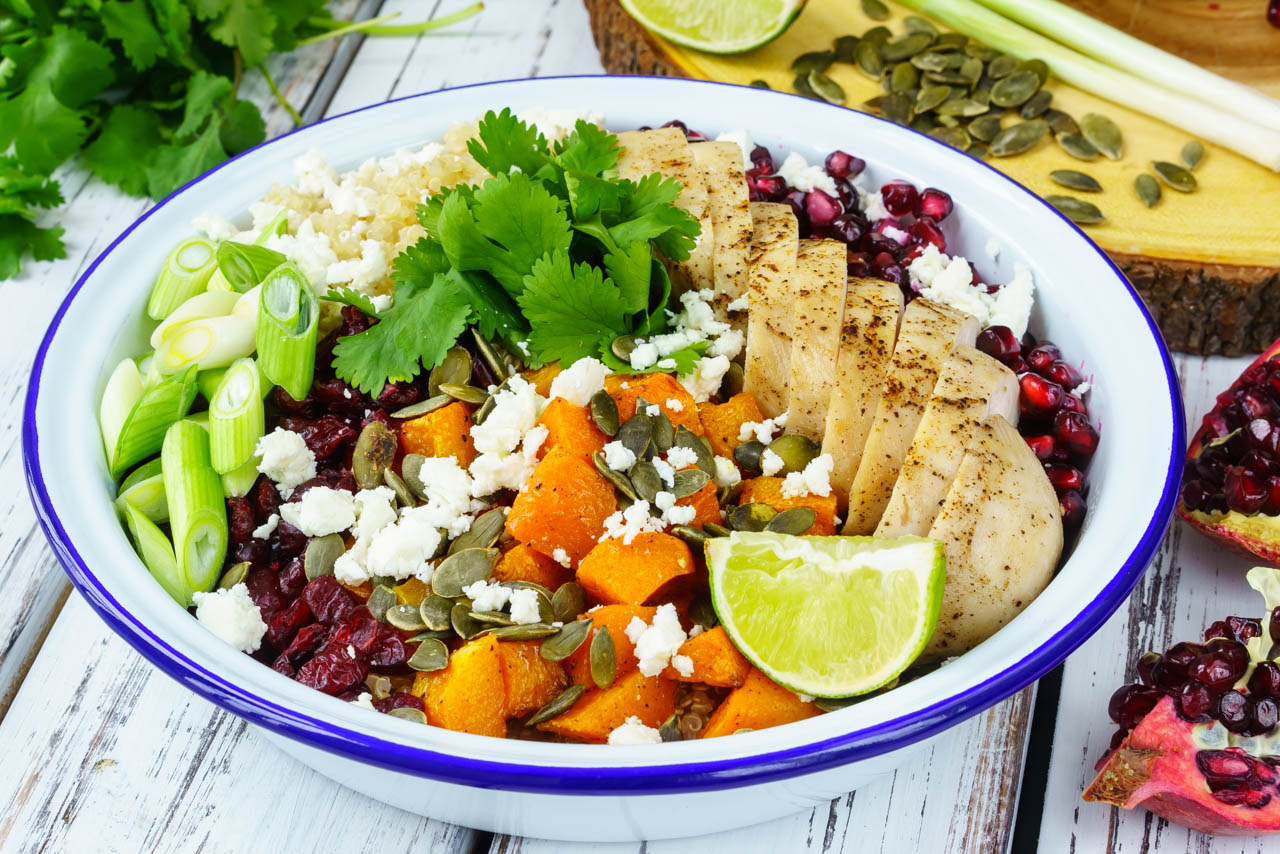
30-Minute Chicken Curry with Winter Veggies
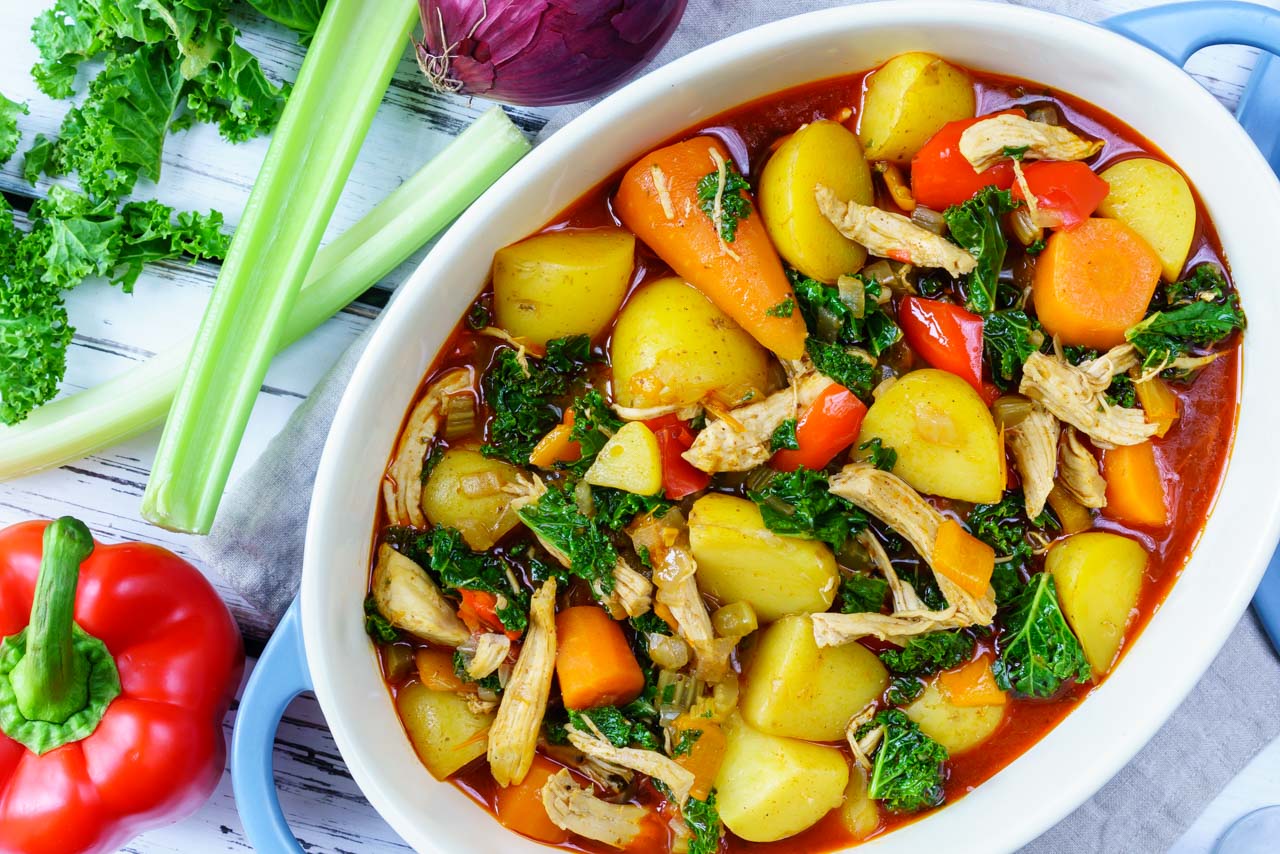
Caramelized Honey-Lime Chicken with Roasted Winter Veggies
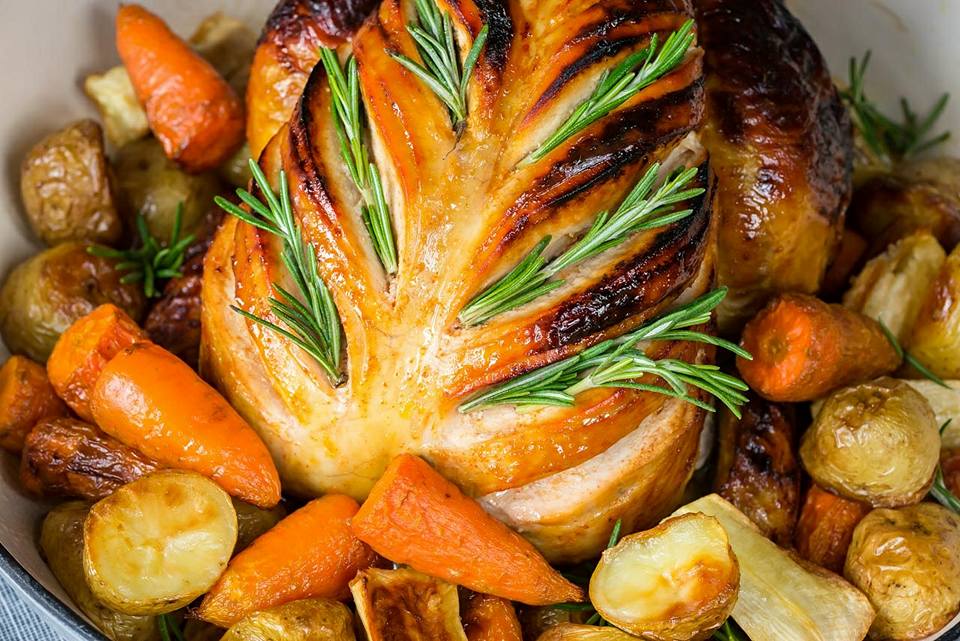
Marinated Brussels Sprouts Salad
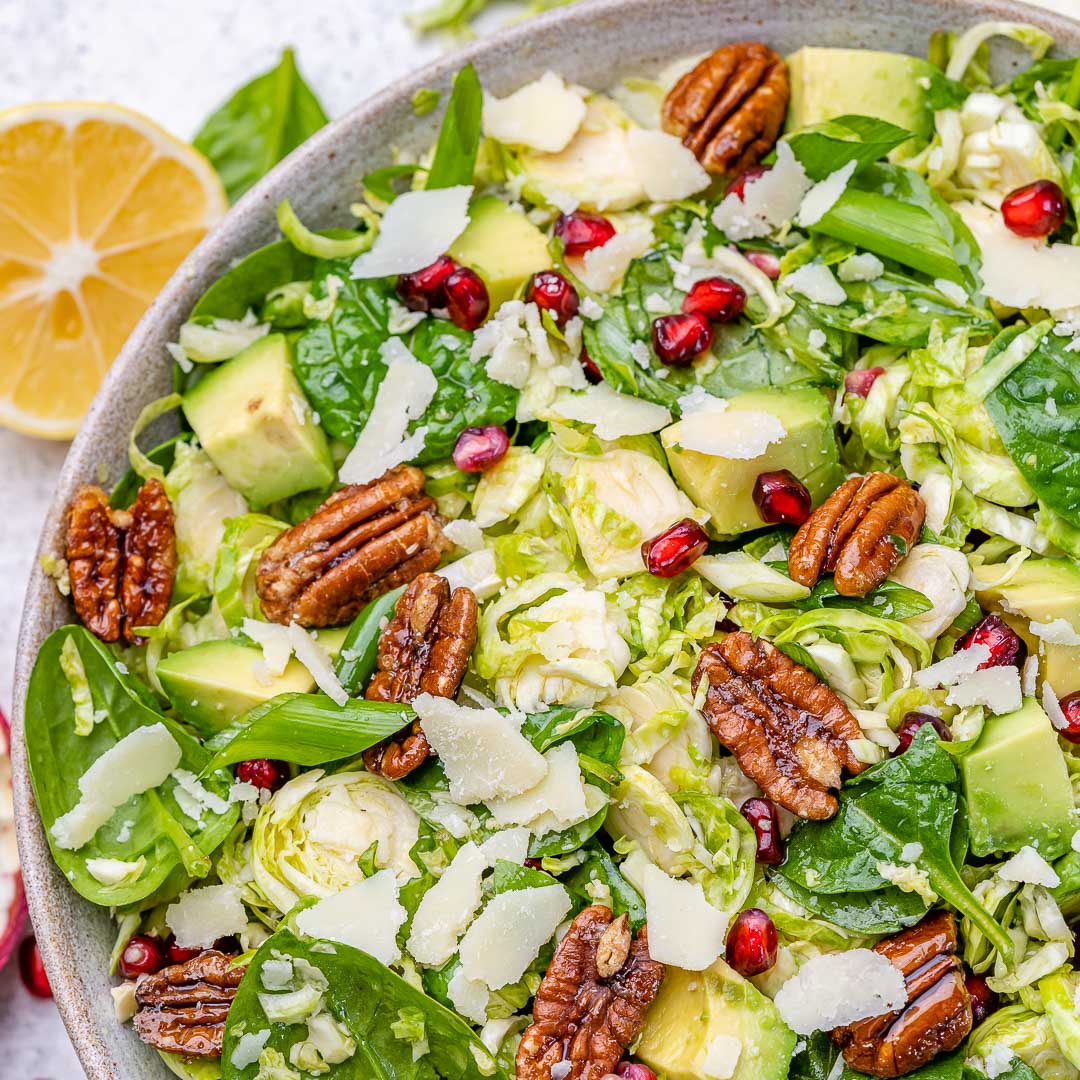
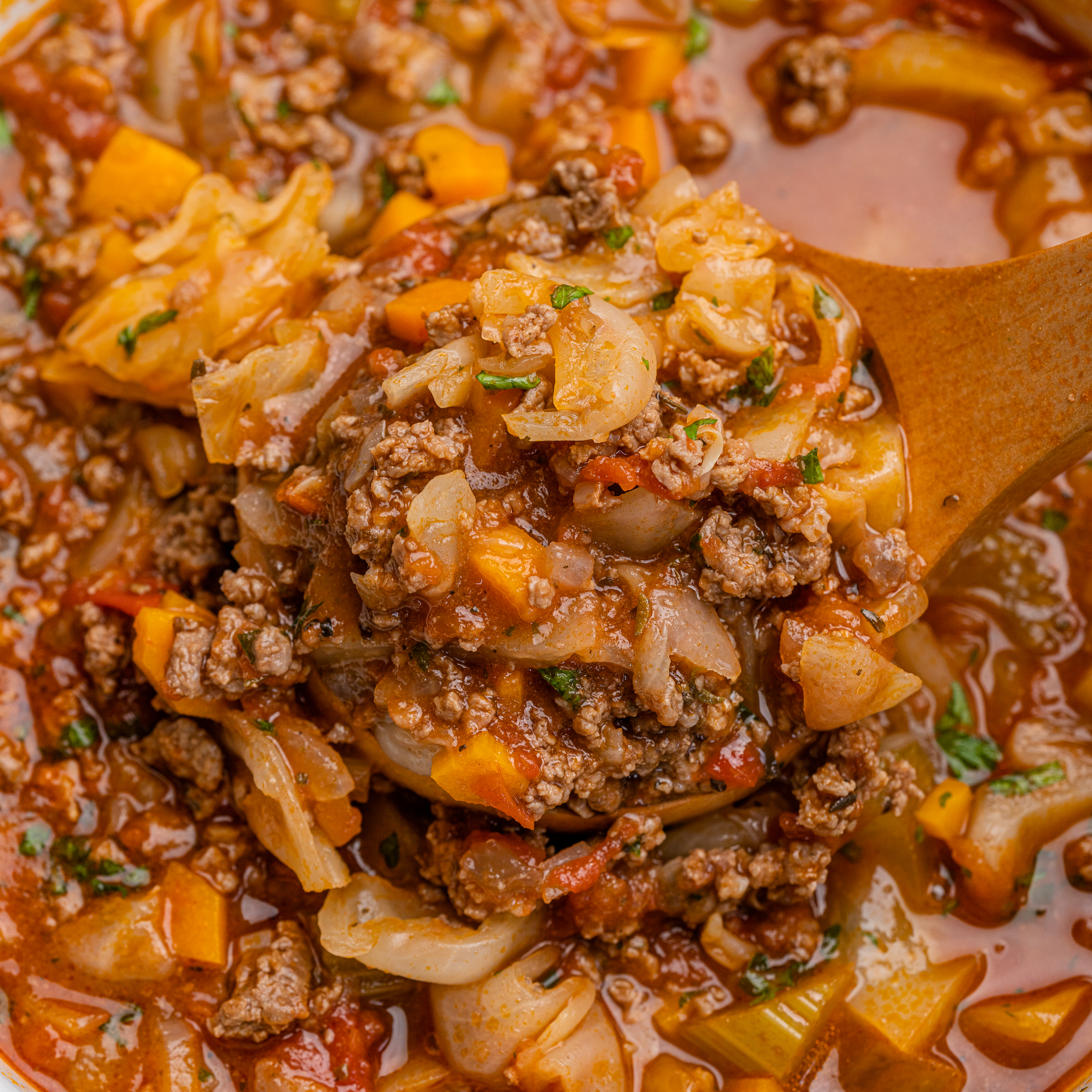
In Summary
Eating seasonally doesn’t have to require any extra effort, and doing so will provide you with many health benefits. For more tips on staying healthy this winter, check out these posts:
- How to stay hydrated in the winter
- Guide to getting outside this winter
- 8 ways to beat the winter blues







